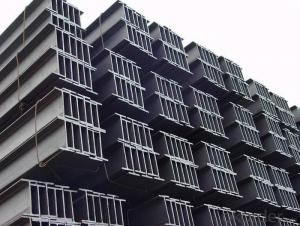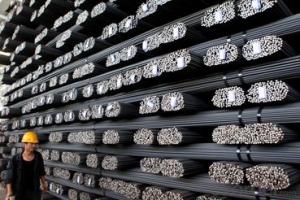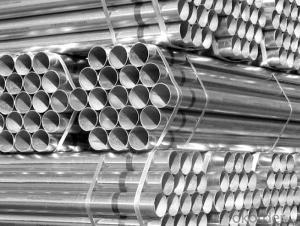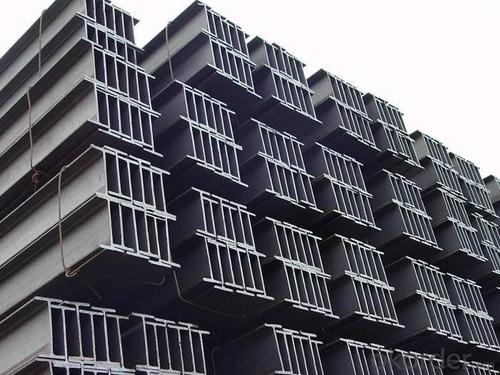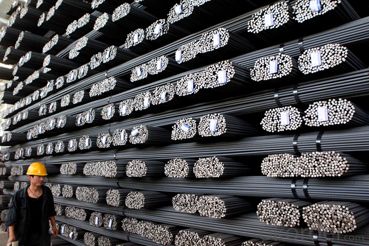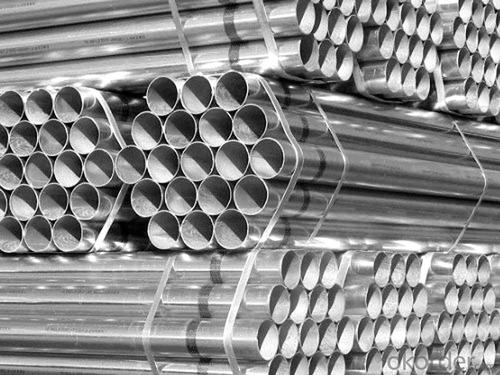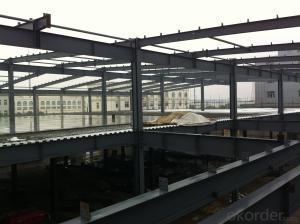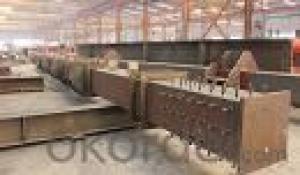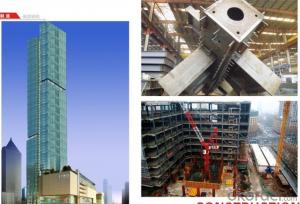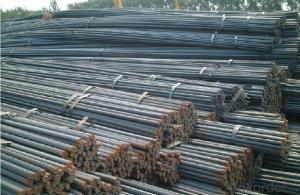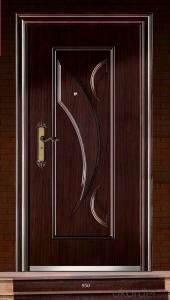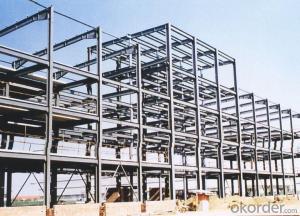Steels Manufacture Building Material with Good Quality on Sale
- Loading Port:
- Tianjin
- Payment Terms:
- TT OR LC
- Min Order Qty:
- 100 m.t
- Supply Capability:
- 1000 m.t/month
OKorder Service Pledge
OKorder Financial Service
You Might Also Like
1.Packaging & Delivery
Packaging Detail: | in bundles or as customer's requirement |
Delivery Detail: | Within 30days after receiving your deposit or copy of L/C |
2.Specifications
HRB400,HRB500 Steel Rebars
1.China direct supplier
2.Best service
3.Competitive price
4.Quantity assured
3.Product Description
Name | High Tensile Export Reinforcing Steel Bar ,Deformed Steel Bar ,HRB400B,HRB,46B,HRB500 Building Construction Material |
Standard | ASTM A615 /BS BS 4449 /GB HRB/ JIS G3112 |
Grade | A615 Gr40/60/75 BS 4449 Gr460,B500 GB HRB335,HRB400 ,HRB500
JIS G3112 SD390
|
Diameter | 6mm-40mm |
Length | 6-12m |
Technique | Low temperature hot-rolling reinforcing deformed steel rebar |
Tolerance | As the standard or as your requirement |
Application | Building, construction, road, bridge,etc |
Certificated | BV |
MOQ | 500tons per size steel rebar |
Packing details | Steel rebar packed in bundle or as your requirement |
Delivery | Within 30 days after deposit |
Payment | T/T or L/C |
4.Chemical Composition
Grade | Technical data of the original chemical composition (%) | |||||||
C | Mn | Si | S | P | V | |||
HRB400 | ≤0.25 | ≤1.60 | ≤0.80 | ≤0.045 | ≤0.045 | 0.04-0.12 | ||
Physics capability | ||||||||
Yield Strength(N/cm2) | Tensile Strength(N/cm2) | Elongation (%)
| ||||||
≥400 | ≥470 | ≥14 | ||||||
Grade | Technical data of the original chemical composition (%) | |||||||
C | Mn | Si | S | P | V | |||
HRB500 | ≤0.25 | ≤1.60 | ≤0.80 | ≤0.045 | ≤0.045 | 0.04-0.12 | ||
Physics capability | ||||||||
≥500 | ≥630 | ≥12 | ||||||
5. Theorectical weight
Diameter (MM) | Cross Sectional Area (MM2) | Theorectical Weight (KG/M) | Weight of 12M Bar (KG) | A Ton Contains 12M Bars (PCS) |
6 | 28.27 | 0.222 | 2.664 | 375.38 |
8 | 50.27 | 0.395 | 4.74 | 210.97 |
10 | 78.54 | 0.617 | 7.404 | 135.06 |
12 | 113.1 | 0.888 | 10.656 | 93.84 |
14 | 153.9 | 1.21 | 14.52 | 68.87 |
16 | 201.1 | 1.58 | 18.96 | 52.74 |
18 | 254.5 | 2 | 24 | 41.67 |
20 | 314.2 | 2.47 | 29.64 | 33.74 |
22 | 380.1 | 2.98 | 35.76 | 27.96 |
25 | 490.9 | 3.85 | 46.2 | 21.65 |
28 | 615.8 | 4.83 | 57.96 | 17.25 |
32 | 804.2 | 6.31 | 75.72 | 13.21 |
36 | 1018 | 7.99 | 98.88 | 10.43 |
40 | 1257 | 9.87 | 118.44 | 8.44 |
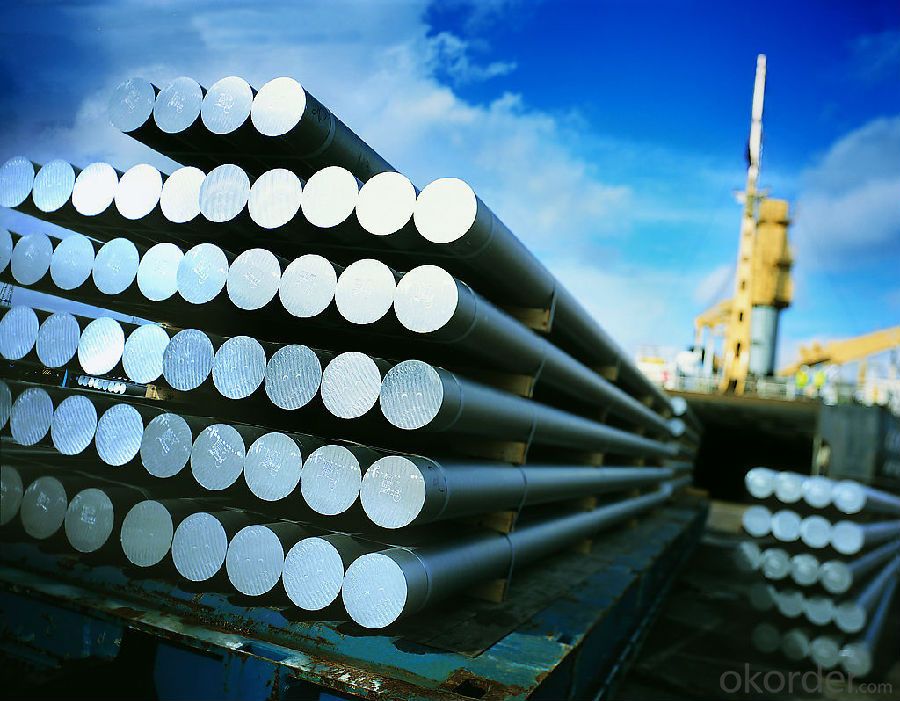
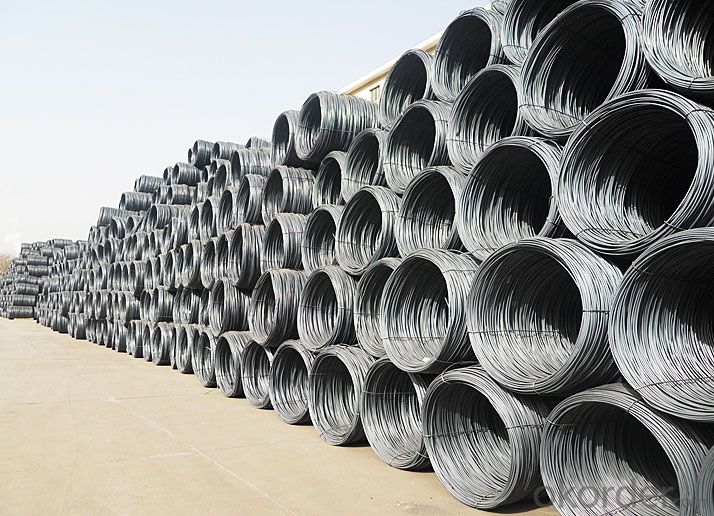
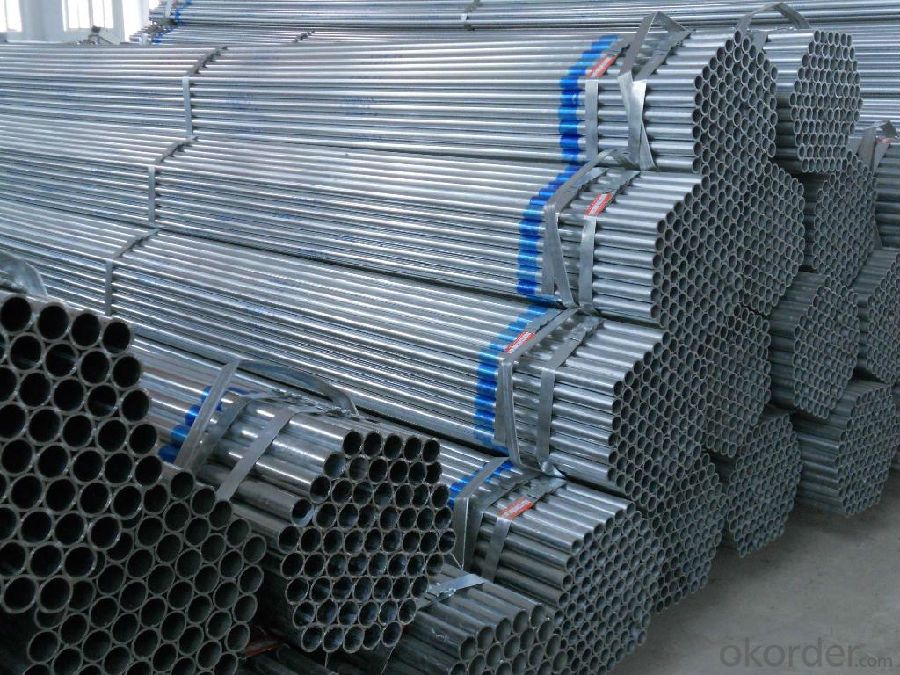
- Q: What is the maximum diameter of steel pipes?
- The maximum diameter of steel pipes can vary depending on the specific manufacturing capabilities, but generally, it can range from a few inches to several feet.
- Q: Can steel pipes be used for underground water supply systems?
- Indeed, underground water supply systems can utilize steel pipes. These pipes, being robust and resistant to corrosion, are well-suited for subterranean purposes. They possess the ability to endure high water pressure, facilitate effective water flow, and exhibit a lengthy lifespan. Nevertheless, it is imperative to guarantee the steel pipes are adequately coated and safeguarded against corrosion to avert any water supply contamination. Furthermore, due to their heavier nature in comparison to alternative materials, additional support may be necessary during installation. To identify any potential concerns and avoid leaks or harm to the underground water supply system, proper maintenance and regular inspections are of utmost importance.
- Q: Are steel pipes suitable for wastewater treatment plants?
- Yes, steel pipes are suitable for wastewater treatment plants. Steel pipes are known for their durability, corrosion resistance, and high strength, making them ideal for handling the demanding conditions of wastewater treatment plants. They can effectively transport and contain wastewater without any structural or functional issues, ensuring efficient and reliable operation of the treatment process.
- Q: What is the maximum temperature and pressure that steel pipes can withstand?
- The maximum temperature and pressure that steel pipes can handle differ based on the specific grade and type of steel utilized. Nevertheless, steel pipes generally have the ability to withstand high temperatures and pressures due to their robust and long-lasting nature. In applications where high temperatures are involved, like in steam or heat transfer systems, steel pipes can typically endure temperatures up to 1000 degrees Celsius (1832 degrees Fahrenheit) or even higher. It is important to note that the exact temperature limit may fluctuate depending on the steel's alloy composition and heat treatment. In terms of pressure, steel pipes are renowned for their exceptional strength and ability to resist internal and external pressure. The maximum pressure that steel pipes can handle will depend on factors such as pipe diameter, wall thickness, and material strength. In industrial applications, steel pipes can handle pressures ranging from a few hundred psi (pounds per square inch) to several thousand psi. To ensure the safe operation of steel pipes under high temperatures and pressures, it is vital to adhere to industry standards and guidelines, as well as conduct regular inspections and maintenance. Seeking advice from engineers and professionals experienced in steel pipe systems can provide more specific information regarding the maximum temperature and pressure limits for a particular steel pipe application.
- Q: Why seamless steel pipe called seamless steel pipe?
- Seamless steel pipe is a hollow section, without the joint round, square, rectangular steel. Seamless steel tubes are made of ingots or billets made by piercing and are then made by hot rolling, cold rolling or cold casting. Seamless steel pipe with a hollow section, as pipe conveying fluid, compared withsteel and roundsteelinsolid, flexural torsional strength in the same time, the weight is light, is a kind of economic section steel, widely used in the manufacture of structural parts and mechanical parts, such as the oil pipe, automobile transmission shaft, bike frame and construction using steel scaffolding.
- Q: What are the different types of steel pipe supports?
- There are several types of steel pipe supports, including pipe hangers, pipe clamps, pipe saddles, pipe brackets, and pipe supports with rollers.
- Q: Can steel pipes be painted?
- Yes, steel pipes can be painted. The process typically involves cleaning and preparing the surface, applying a primer, and then using a suitable paint or coating to achieve the desired finish.
- Q: How are steel pipes classified based on their wall thickness?
- Steel pipes are classified based on their wall thickness into three categories: standard weight, extra-strong, and double extra-strong.
- Q: Is the steel frame on each floor supporting formwork (floor) called full scaffolding?
- After the use of full scaffolding, more than 3.6 meters of interior wall decoration is no longer calculated decorative scaffolding, and the interior wall of the scaffolding is still in accordance with the provisions of the scaffolding.
- Q: How are steel pipes used in automotive manufacturing?
- Steel pipes are widely used in automotive manufacturing for various purposes. One of the primary applications of steel pipes in this industry is for the exhaust system. The exhaust system in vehicles is responsible for the safe removal of harmful gases produced during the combustion process. Steel pipes are used to create the exhaust manifold, which collects the exhaust gases from the engine cylinders and directs them towards the exhaust pipe. Furthermore, steel pipes are also used in the manufacturing of the chassis and frame of vehicles. The chassis provides structural support and helps maintain the overall strength and stability of the vehicle. Steel pipes, due to their high strength and durability, are ideal for creating the chassis and frame. These pipes are often welded together to form a rigid and robust structure that can withstand various forces and impacts. Additionally, steel pipes find applications in the suspension system of automobiles. The suspension system is responsible for providing a comfortable and smooth ride by absorbing shocks and vibrations. Steel pipes are used in the manufacturing of suspension components such as control arms, tie rods, and sway bars. These components help maintain the stability, handling, and overall performance of the vehicle. Moreover, steel pipes are utilized in the fuel system of automobiles. They are used to transport fuel from the fuel tank to the engine. These pipes need to be resistant to corrosion and have high tensile strength to ensure the safe and efficient delivery of fuel. In conclusion, steel pipes play a crucial role in automotive manufacturing. They are used in various applications such as the exhaust system, chassis and frame construction, suspension system, and fuel system. The use of steel pipes in these areas ensures the durability, strength, and performance of vehicles while maintaining safety and efficiency.
Send your message to us
Steels Manufacture Building Material with Good Quality on Sale
- Loading Port:
- Tianjin
- Payment Terms:
- TT OR LC
- Min Order Qty:
- 100 m.t
- Supply Capability:
- 1000 m.t/month
OKorder Service Pledge
OKorder Financial Service
Similar products
Hot products
Hot Searches
Related keywords
